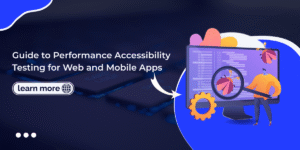
Imagine a hotel that always knows how many staff members it will need next week, even before reservations are made. This is not wishful thinking — it’s the power of predictive scheduling. With advanced analytics and automation, workforce management for hospitality sector solutions are helping hotels and restaurants predict labor needs, optimize scheduling, and elevate guest satisfaction like never before.
Table of Contents
- What is Predictive Scheduling in Hospitality?
- The Role of Workforce Management SAAS Software Performance
- How Predictive Analytics Transforms Hotel Staffing
- Real-Time Adjustments and Employee Empowerment
- Benefits of Data-Driven Scheduling for Managers and Staff
- Key Technologies Powering Predictive Workforce Systems
- Why Qhub360 Leads the Predictive Management Revolution
- Quick Summary
- Frequently Asked Questions
What is Predictive Scheduling in Hospitality?
Predictive scheduling is a data-driven approach to managing staff availability, demand, and performance. It uses historical data, booking patterns, and external factors (like holidays or local events) to forecast how many employees are needed for specific shifts.
This new approach replaces manual spreadsheets and guesswork with intelligent forecasting models, ensuring that hospitality operations always stay ahead of demand.
Through predictive tools, workforce management for hospitality sector platforms help prevent overstaffing and understaffing, keeping both labor costs and customer satisfaction in balance.
The Role of Workforce Management SAAS Software Performance
Modern SAAS platforms are the engine behind predictive workforce systems. They combine cloud accessibility, automation, and machine learning to process large volumes of data in real time.
Here’s how workforce management software performance tools transform scheduling operations:
| Function | Traditional Systems | SAAS Predictive Platforms |
| Forecasting | Manual and reactive | AI-driven and proactive |
| Communication | Slow, often manual | Instant via cloud apps |
| Scalability | Limited to location | Works across multiple sites |
| Updates | Require installation | Automatic, real-time updates |
The result is a more efficient, flexible, and transparent scheduling process that adapts instantly to market and business shifts.
How Predictive Analytics Transforms Hotel Staffing
Predictive analytics helps hotels anticipate staffing needs by analyzing patterns in occupancy, guest bookings, and employee performance. When combined with automation, it can instantly generate optimized schedules and shift recommendations.
Key improvements include:
- Reduced manual scheduling time
- Accurate demand forecasting for busy periods
- Real-time tracking of attendance and productivity
- Automatic alerts for schedule conflicts or absences
By leveraging workforce management for hospitality sector tools with predictive analytics, managers gain full visibility into labor requirements before challenges arise.
Real-Time Adjustments and Employee Empowerment
Hospitality environments change fast — last-minute bookings, event cancellations, or unexpected absences can disrupt even the best-laid plans. Real-time scheduling makes it easy to adjust instantly.
Modern workforce platforms allow employees to receive notifications, accept shifts, or request swaps directly from their mobile devices. This not only improves operational agility but also empowers staff with greater control over their schedules.
When employees feel empowered, their satisfaction and retention rates rise — a crucial benefit for an industry known for high turnover.
Benefits of Data-Driven Scheduling for Managers and Staff
Predictive and automated scheduling drives measurable improvements across hotel operations.
| Benefit | Description |
| Efficiency Gains | Automation reduces administrative workload and scheduling time |
| Improved Accuracy | Predictive insights ensure staffing aligns with actual demand |
| Employee Satisfaction | Transparent scheduling improves fairness and morale |
| Cost Optimization | Avoids overtime and unnecessary labor costs |
| Service Consistency | Ensures the right staff coverage during peak times |
The combination of predictive analytics and automation sets a new standard for workforce management software performance, turning data into a strategic business asset.
Key Technologies Powering Predictive Workforce Systems
The success of predictive scheduling depends on advanced technology working behind the scenes. Effective workforce management for hospitality sector software relies on:
- Machine Learning Algorithms – Analyze trends and forecast demand automatically.
- Real-Time Data Feeds – Sync live information on bookings, attendance, and shifts.
- Cloud Infrastructure – Provides secure, scalable access for managers and employees.
- Mobile Integration – Enables instant communication and schedule flexibility.
- Analytics Dashboards – Deliver insights into labor performance and productivity trends.
Together, these technologies ensure hotels remain responsive and resilient, no matter how quickly conditions change.
Why Qhub360 Leads the Predictive Management Revolution
Qhub360 brings predictive power to the hospitality industry with an intuitive platform designed for all users. From shift scheduling to payroll tracking, Qhub360 automates every layer of workforce management while keeping operations simple and accessible.
Here’s what makes Qhub360 exceptional:
- Real-time notifications and updates
- AI-powered forecasting tools
- Group messaging for instant communication
- Payroll and attendance integration
- Secure, cloud-based architecture
Qhub360 isn’t just another scheduling app — it’s a comprehensive ecosystem built to enhance workforce management software performance, making workforce planning effortless, insightful, and future-ready.
Quick Summary
| Takeaway | Description |
| Predictive scheduling transforms workforce planning | Forecasts staffing needs accurately |
| Automation boosts agility | Enables instant adjustments and communication |
| Data-driven insights reduce costs | Aligns labor spend with actual demand |
| Employee empowerment improves morale | Gives staff control and transparency |
| Qhub360 delivers predictive power | All-in-one SAAS platform for hospitality success |
Frequently Asked Questions
What is predictive scheduling in hospitality?
It’s a method that uses data and AI to forecast staffing needs, ensuring hotels have the right staff levels at all times.
How does workforce management software performance improve with AI?
AI enhances speed, forecasting accuracy, and automation, helping managers make better real-time decisions.
Can predictive scheduling reduce labor costs?
Yes. It prevents overstaffing and overtime while ensuring adequate coverage during busy periods.
Why should hotels use platforms like Qhub360?
Because they combine predictive analytics, automation, and real-time management into one seamless solution.
Is predictive workforce management suitable for small hotels?
Absolutely. Qhub360 is built for all users, making predictive tools accessible to businesses of any size.

